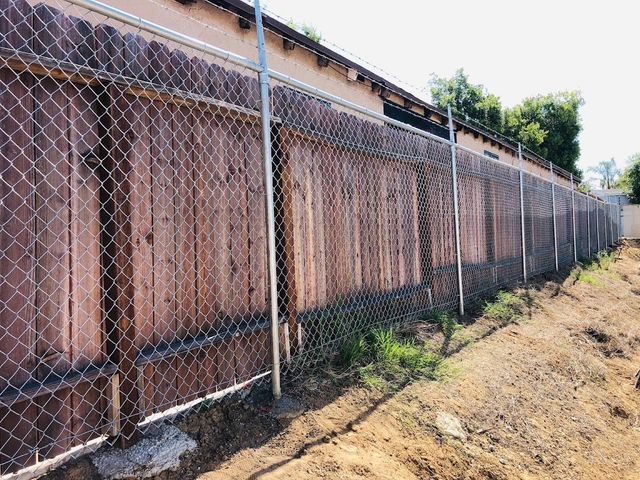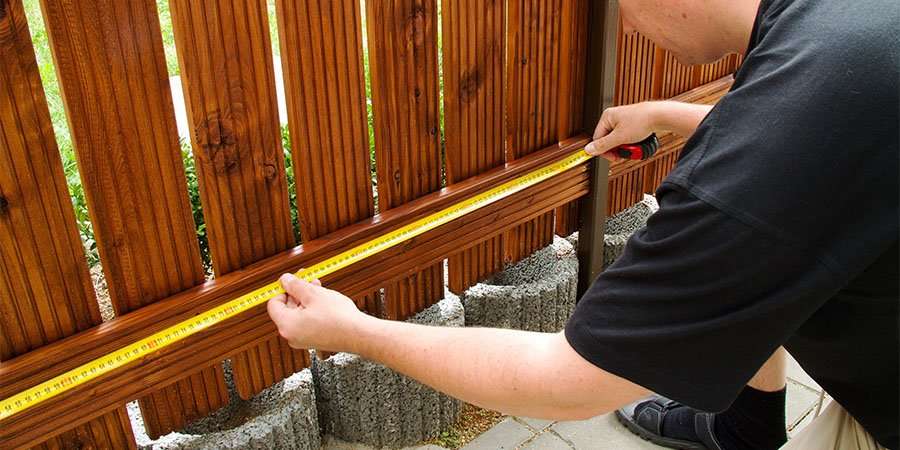All Categories
Featured

When installing a fence, choosing the right material is key to balancing performance, appearances, and budget plan. Wood, plastic, and light weight aluminum are amongst the most frequently chosen secure fencing materials, each with its staminas and drawbacks. This overview explores the pros and disadvantages of these options to aid you make an educated decision.

Timber Fencing. Pros:. Natural Appeal: Wood's timeless beauty can improve any home with its cozy and timeless appearance. Personalized: You can paint, discolor, or sculpt timber to fit your style preferences. Inexpensive: Wood fence is at first a lot more economical contrasted to some various other materials. Eco-friendly: As a renewable resource, wood is biodegradable and commonly considered environmentally friendly. Cons:. Maintenance-Intensive: Routine sealing, paint, or staining is required to avoid damage from climate and parasites. Prone to Degeneration: Without appropriate treatment, timber can rot, warp, or fracture with time. Shorter Lifespan: Generally, timber fences last 10-15 years, relying on the kind of wood and maintenance. Timber is a wonderful option for those who value aesthetic appeals and agree to buy normal maintenance to maintain its look and resilience.
Plastic Fencing. Pros:. Reduced Upkeep: Vinyl needs minimal treatment-- just occasional cleansing with soap and water. Weather condition Resistant: It does not warp, rot, or catch insect damages, making it highly sturdy in numerous environments. Long life: Plastic fencings can last 20-30 years with little to no repairs. Style Variety: Available in a wide variety of structures, colors, and styles, consisting of wood-like appearances. Disadvantages:. Higher First Price: Plastic fencings are more pricey in advance compared to wood. Vulnerability to Cold: In incredibly winter, plastic can come to be vulnerable and breakable to breaking. Restricted Repair Options: Matching replacement panels can be challenging if damage occurs. Plastic secure fencing is optimal for home owners searching for a long-lasting, low-maintenance option that uses contemporary adaptability.

Aluminum Fence. Pros:. Rust-Proof: Light weight aluminum resists corrosion, making it a superb option for humid or damp settings. Resilient: In spite of being lightweight, aluminum is solid and can hold up against rough weather. Low Upkeep: It calls for very little upkeep, commonly only periodic cleansing. Long Lifespan: Aluminum fences can last years without significant damage. Stylish Design: Frequently used for ornamental purposes, aluminum secure fencing adds a sleek, innovative aim to properties. Disadvantages:. High Initial Investment: Light weight aluminum fences are among the pricier choices on the market. Less Personal privacy: The open designs common with light weight aluminum fencing do not supply much personal privacy. At risk to Damage: While long lasting, aluminum can dent if struck with sufficient force. Aluminum is an outstanding option for property owners prioritizing looks and sturdiness without needing much upkeep.
Making Your Choice. When deciding in between light weight aluminum, plastic, or timber secure fencing, consider your top priorities:
Timber fits those that value an all-natural appearance and do not mind placing in upkeep initiative. Plastic is the very best choice for those looking for a low-maintenance, weather-resistant service. Aluminum offers sleek design and resilient toughness but may lack personal privacy. By thoroughly examining these products' functions, you can choose a fencing that complements your residential or commercial property while fulfilling your practical and visual demands.
Latest Posts
Explore Leading Car Repair Solutions from Montclare Auto Repair – Quality Service Today
Published May 29, 25
1 min read
Reasons Regular Vehicle Maintenance at Montclare Auto Repair Reduces Costs
Published May 27, 25
1 min read
Unlock WyHy Federal Credit Union – Smart Money Management for Your Money Goals
Published May 25, 25
1 min read
More
Latest Posts
Explore Leading Car Repair Solutions from Montclare Auto Repair – Quality Service Today
Published May 29, 25
1 min read
Reasons Regular Vehicle Maintenance at Montclare Auto Repair Reduces Costs
Published May 27, 25
1 min read
Unlock WyHy Federal Credit Union – Smart Money Management for Your Money Goals
Published May 25, 25
1 min read